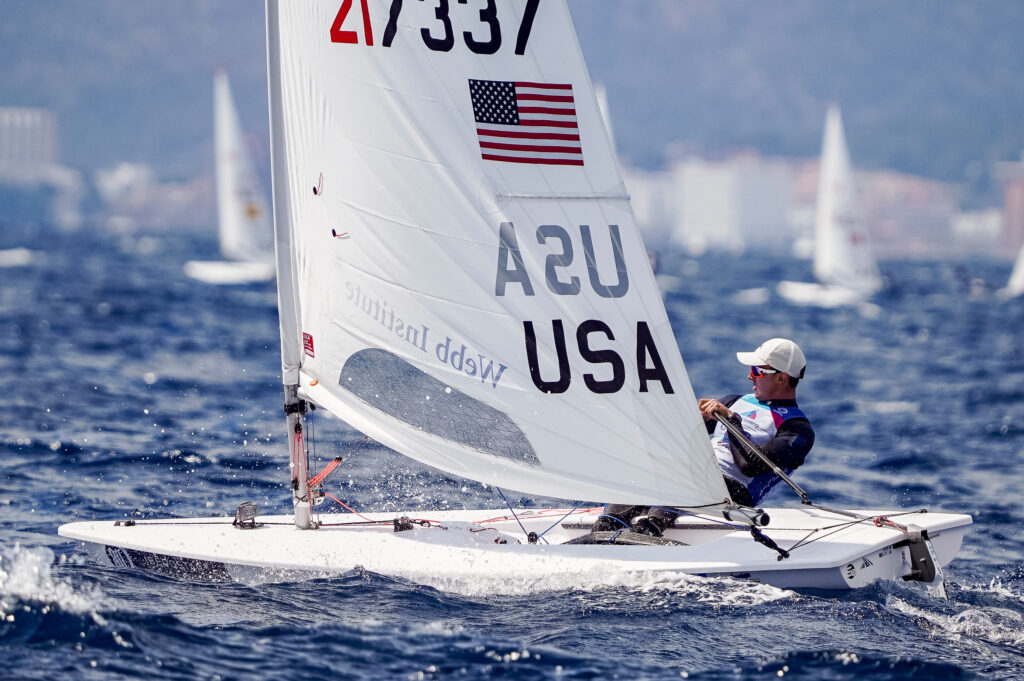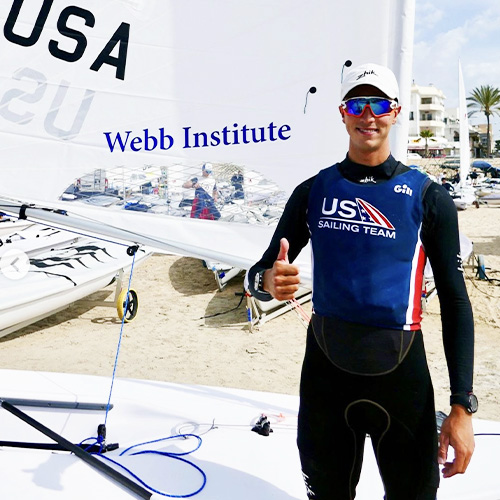How did you become interested in sailing, and what led you to compete at such a high level?
I got introduced to sailing through a learn to sail summer camp program at Bay of Quinte Yacht Club in Canada where I grew up. During the summer of 2016, they offered a racing camp during which I started sailing Lasers (now ILCAs). I had so much fun at the regatta that culminated the camp, I really wanted to continue racing. My parents started signing me up for some local regattas, which is when a coach suggested I join the Lauderdale Yacht Club Racing Team. Anywhere from 20 to 30 boats would show up to practice every weekend. I went to high school near Atlanta, so I had to drive or fly down to Lauderdale to get to weekend practices. At first, I would go to practice once every two or three weeks, but by my junior year, I was in Lauderdale every weekend. At one point, I even took my SAT exam in Lauderdale to not miss practice. I was sailing during all my breaks and holidays. During my last two years of high school, I was ranked 1st Laser Radial (ILCA6, youth class) in North America and made it onto the US Sailing Olympic Development Team. After graduating, I transitioned into the ILCA7, the Olympic class. It was a tough transition as it was like learning to sail a new boat. While at Webb, I managed to work my way into the top 3 ILCA7 in the US putting me into a position to qualify for the 2024 Olympic games.
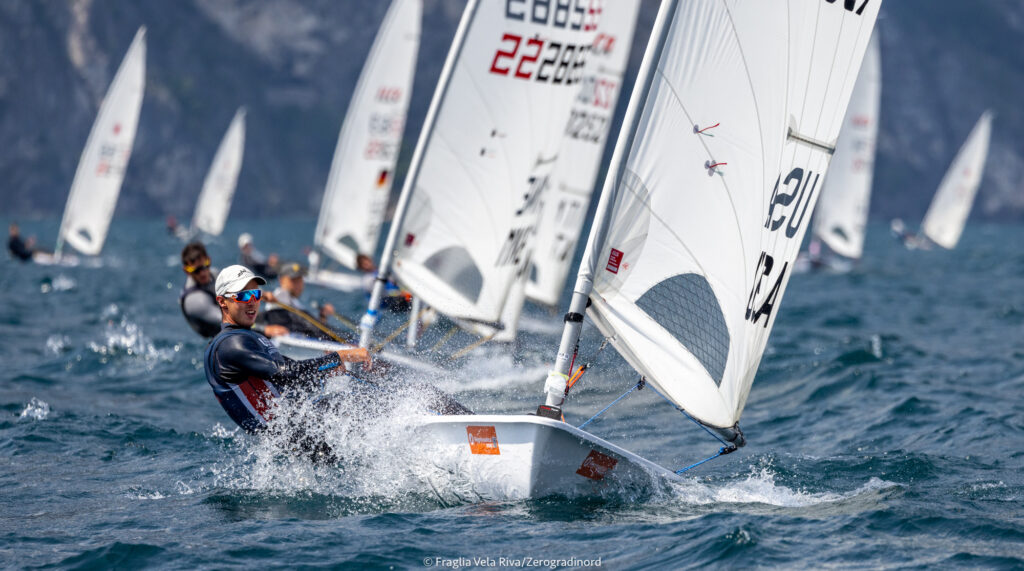
Can you tell us about your journey from being at Webb to your ongoing campaign to qualify for Olympic sailing?
Given the academic workload at Webb, my goal during the Webb semester was focus on my fitness while trying to maintain my sailing skills the best I could. A typical week consisted of at least 2 sailing sessions, weightlifting 3-4 days, and about 80 miles cycling with a local team. I also joined some friends on a few weekends during the semester for some ILCA racing at American Yacht Club. Fortunately, President Martecchini, Dean Werner, and the faculty are extremely supportive of my sailing, and even allowed to take time off to train and compete.
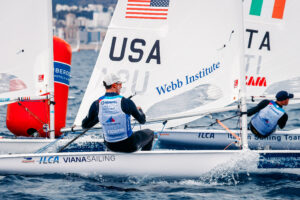
What are some of the challenges that you face in training for the Olympics?
Campaigning for the Olympics is a logistical, planning, and funding nightmare. I don’t stay in the same country for more than two weeks at a time before I travel to the next. I have to make sure my equipment stays in order and everything I need gets to the next place. I’d like to take this moment to thank my parents and my coach. Without them it would be impossible.
Of course, performing and improving is another challenge. The skill gap between the U21 and Senior fleet is massive. Competing against the best in the world is a very humbling experience. Dealing with the stress and pressure of personal expectations of improvement, especially when extremely tired from training and competing can be very challenging. Mentally draining – resilience.
How does it feel to represent both Webb and the USA- on a global platform?
I am very proud to represent Webb and the USA on a global platform. It is great to know that I have my college supporting and cheering for me, and it adds motivation to do my best while training and competing!
What advice would you give to other student-athletes?
The main advice I would give is that everything comes down to time management and prioritizing. Especially with Webb’s demanding academic workload, fitting in the necessary training while leaving some free time available is very tricky but totally achievable.
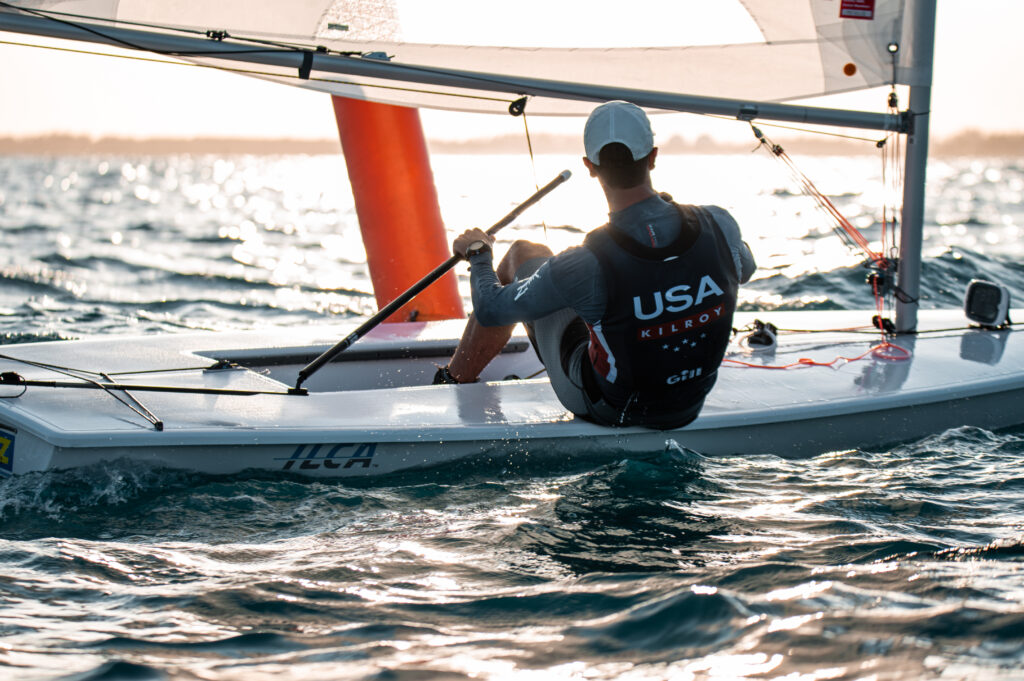
How has Webb impacted you on your journey to the Olympics?
I’d say Webb has helped me greatly improve my stress and time management skills. Since Webb’s academic load can be quite stressful at times, I’ve found that it has improved my resilience and work efficiency, especially when having to complete assignments and exams while competing at regattas at the same time.
I also find it funny when the things we learn at Webb for designing and building container ships apply to my sailing. Webb has helped me get a better understanding of my boat and look at my sailing from a more technical and analytical perspective, which gives me an edge over my competitors. I am very grateful for the invaluable skills I have learned at Webb.
What are your plans for when you graduate from Webb?
I would like to use my Webb degree to get involved in professional sailing like the America’s Cup or SailGP and design faster, more advanced boats. I also have my sights set on campaigning for LA 2028.
